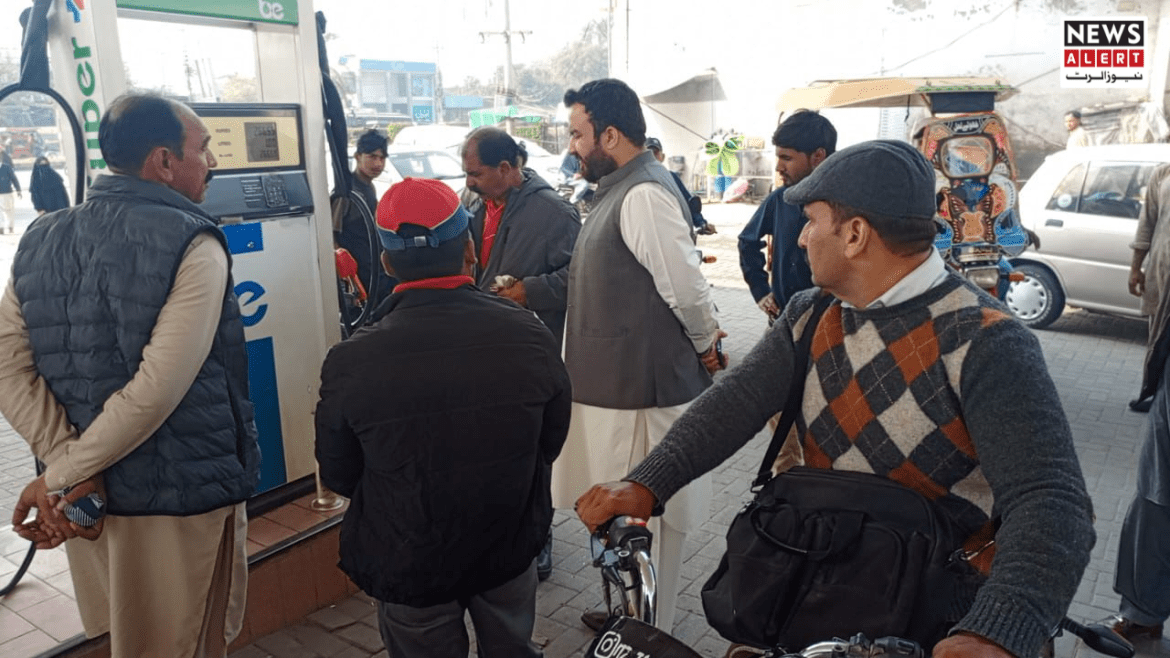Surprise Visit to GT Road Fuel Stations
Authorities in Pakistan’s Punjab province sealed a petrol station on Old GT Road in Gujrat after officials discovered a significant shortfall in fuel measurement during a surprise inspection. Assistant Commissioner Abdul Qadeer Zarkoon led the unannounced operation, which focused on verifying the accuracy of fuel pumps and ensuring customers receive fair quantities.
The inspection involved checking calibration systems, examining dispensing units, and reviewing maintenance records. Officials also spoke with staff to understand operational procedures.
Measurement Irregularities Lead to Immediate Closure
During the visit, the inspection team found that one petrol pump was dispensing noticeably less fuel than recorded on its meters. According to officials, the discrepancy was clear enough to warrant immediate action.
The Assistant Commissioner ordered the fuel station sealed on the spot. The administration will likely pursue legal or regulatory steps in accordance with Pakistan’s laws governing weights and measures.
Fuel short-selling is a recurring issue in the region. Even minor discrepancies can result in substantial losses for consumers. Under Pakistani law, authorities can impose fines, suspend licenses, or shut down fuel outlets found guilty of tampering with measurement instruments.
Administration Vows Continued Crackdowns
A spokesperson for the Gujrat administration said the inspection was part of an ongoing province-wide effort to ensure transparency in fuel distribution. He noted that such checks are essential for consumer protection and market fairness.
Officials emphasized that the crackdown on malpractice would continue. Surprise inspections, they said, serve as a deterrent against the manipulation of fuel dispensers, a practice that has been repeatedly flagged in consumer complaints.
Why Fuel Measurement Checks Matter
Pakistan’s fuel sector has long faced issues involving inaccurate measurements, meter tampering, and low-quality fuel. According to the country’s Oil and Gas Regulatory Authority (OGRA), the regulator conducts hundreds of inspections annually. Many stations receive warnings, while others face penalties for violating rules on calibration and quality control.
Such oversight is crucial because:
-
Fuel consumption directly impacts household and transport costs.
-
Short-selling can undermine public trust in the market.
-
Irregularities affect commercial transport, agriculture, and daily commuting.
-
Proper calibration helps maintain national standards and ensures fair trade.
Fuel prices in Pakistan fluctuate frequently due to global oil markets, exchange rate pressures, and tax adjustments. In such an environment, ensuring correct measurements becomes even more important for consumers trying to manage daily expenses.
Public Response and Broader Context
Local residents often rely on GT Road fuel stations due to the heavy flow of intercity traffic and commercial transport. After news of the sealing spread, social media users in Gujrat welcomed the action and called for more consistent monitoring across smaller towns and rural areas.
Consumer rights advocates argue that regular inspections prevent exploitation and encourage fuel station owners to maintain proper standards. They say such accountability is vital, especially in regions where regulatory enforcement has historically been inconsistent.
Officials Stress Zero Tolerance for Violations
Assistant Commissioner Zarkoon reiterated that the administration will not tolerate any malpractice related to fuel measurement. He noted that ensuring accurate quantity is not only a legal requirement but also a public service obligation.
He added that more surprise visits are planned for the coming weeks. Teams will check mechanical calibration, digital meter records, and quality testing to ensure compliance with national standards.















